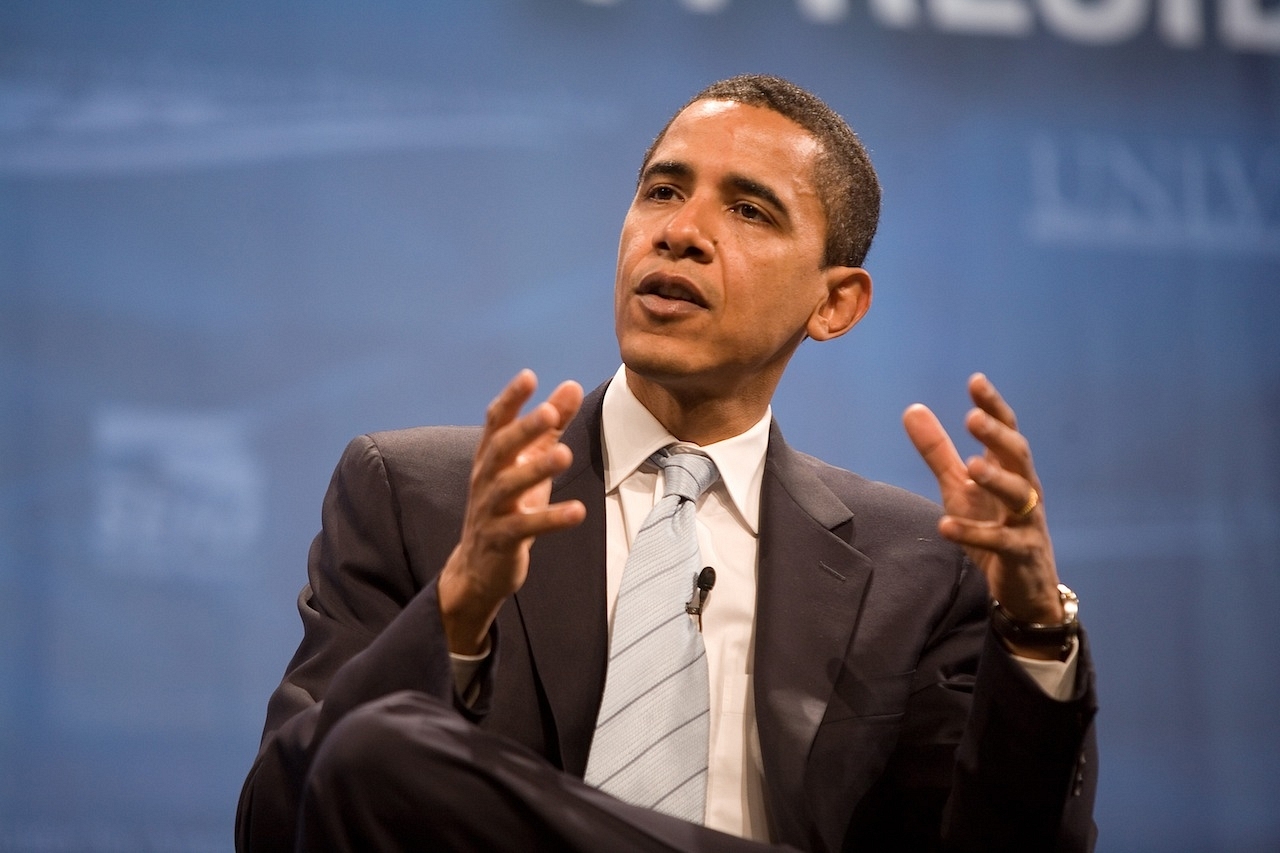News Brief
'India Has A Special Place In My Heart': Obama Talks About Listening To Hindu Epics Ramayana, Mahabharata As A Child

Barack Obama
Former United States (US) president Barak Obama not only won a Nobel peace prize 2009 for his “extraordinary efforts to strengthen international diplomacy and cooperation between peoples”, but also became somewhat of a poster-boy for the left liberal ideologues around the world.
He remitted his office in 2016 after the maximum permissable two Presidential terms, when Republican nominee Donald Trump won the election was widely described as a "whitelash" - the backlash of the white America against the first black president in the oldest democracy.
Recently, the first of the two volume of Obama’s memoir "A Promised Land" attracted eyeballs in India.
Obama also writes that he has always held a special place for India due to him listening to the tales in great Indian epics Ramayana and Mahabharata when he was in Indonesia as a child.
He says that India "always held a special place in my imagination".
"Maybe it was because I'd spent a part of my childhood in Indonesia listening to the epic Hindu tales of the Ramayana and the Mahabharata, or because of my interest in Eastern religions, or because of a group of Pakistani and Indian college friends who'd taught me to cook dal and keema and turned me on to Bollywood movies," Obama writes.
In the book, Obama also criticises the leader of the Congress party, Rahul Gandhi. He described Rahul as having “a nervous, unformed quality about him, as if he were a student who’d done the coursework and was eager to impress the teacher but deep down lacked either the aptitude or the passion to master the subject”.
He further writes on the prime ministership of Manmohan Singh under the UPA.
"... More than one political observer believed that she'd (Sonia Gandhi) had chosen Singh precisely because as an elderly Sikh with no national political base, he posed no threat to her forty year-old son, Rahul, whom she was grooming to take over the Congress Party".
Describing the dinner he had with Sonia Gandhi, Rahul Gandhi and Manmohan Singh, he says that “she [Sonia Gandhi] listened more than she spoke, careful to defer to Singh when policy matters came up, and often steered the conversation toward her son".
He continues: "It became clear to me, though, that her power was attributable to a shrewd and forceful intelligence. As for Rahul, he seemed smart and earnest, his good looks resembling his mother's. He offered up his thoughts on the future of progressive politics, occasionally pausing to probe me on the details of my 2008 campaign”.
Obama praises Singh for "as a chief architect of India's economic transformation” and “a fitting emblem of this progress”, saying that the time he spent with Manmohan Singh confirmed his initial impression of him as a man of "uncommon wisdom and decency."
Obama writes that he wondered what would happen when Singh left office: "Would the baton be successfully passed to Rahul, fulfilling the destiny laid out by his mother and preserving the Congress Party's dominance over the divisive nationalism touted by the BJP?"
Obama then goes on to sympathise with Manmohan, seeing him as somewhat of a victim of the situation: “... it wasn't Singh's fault. He had done his part, following the playbook of liberal democracies across the post-Cold War world: upholding the constitutional order; attending to the quotidian, often technical work of boosting the GDP; and expanding the social safety net..”
He also lauds Singh resisting the calls to retaliate against Pakistan after the terror attacks, and says that his restraint had cost him politically.
In fact, it seems that Obama is sympathising with himself as he sympathises with Singh.
“Like me, he had come to believe that this was all any of us could expect from democracy, especially in big, multiethnic, multi-religious societies like India and the United States. Not revolutionary leaps or major cultural overhauls; not a fix for every social pathology or lasting answers for those in search of purpose and meaning in their lives. Just the observance of rules that allowed us to sort out or at least tolerate our differences, and government policies that raised living standards and improved education enough to temper humanity's baser impulses."
The former US president also asks in the book whether impulses of "violence, greed, corruption, nationalism, racism, and religious intolerance, the all-too human desire to beat back our own uncertainty and mortality and sense of insignificance by subordinating others" were too strong for any democracy to permanently contain.
"For they seemed to lie in wait everywhere, ready to resurface whenever growth rates stalled or demographics changed or a charismatic leader chose to ride the wave of people's fears and resentments," he writes.
Support Swarajya's 50 Ground Reports Project & Sponsor A Story
Every general election Swarajya does a 50 ground reports project.
Aimed only at serious readers and those who appreciate the nuances of political undercurrents, the project provides a sense of India's electoral landscape. As you know, these reports are produced after considerable investment of travel, time and effort on the ground.
This time too we've kicked off the project in style and have covered over 30 constituencies already. If you're someone who appreciates such work and have enjoyed our coverage please consider sponsoring a ground report for just Rs 2999 to Rs 19,999 - it goes a long way in helping us produce more quality reportage.
You can also back this project by becoming a subscriber for as little as Rs 999 - so do click on this links and choose a plan that suits you and back us.
Click below to contribute.
Latest